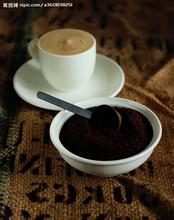What are the treatment methods of raw coffee beans? which is better, capsule coffee machine or traditional coffee machine?
Natural washing method
This method is extremely common in Brazil. The natural washing method is very similar to the water washing method, except that the natural washing method uses a high-pressure washing machine to remove the mucous membrane of the coffee surface, thus skipping the fermentation process. Several raw coffee processing companies in Brazil and Colombia have patented this method and have become local natural water system processing monopolies. The amount of water used in this method is much lower than that of washing hair, so some people are used to calling it "semi-drying (Semi-Dry)". Because there is no fermentation, coffee beans do not exist (or only have a very low risk of fermentation), and the overall quality of coffee is more constant. Unfortunately, the taste of coffee tends to be flat because it is not fermented. As a result, growers will not use natural washing for ultra-high quality coffee beans. Most raw bean purchasing companies also rarely buy coffee processed by natural washing.
four
Honey treatment method
Honey treatment is used in almost all the producing areas of Costa Rica. This method is also widely spread throughout Central America. Because the surface mucosa of coffee beans is extremely slippery and the sugar content is extremely high, it is often called "honey". In the process of honey treatment, coffee will leave some or all of the "honey" when it is dried. After the coffee fruit is picked, graded and peeled, it is placed on a drying bed to dry.
Because the drying time of the mucous membrane is very short, coffee beans hardly ferment during the drying process. The acidity of coffee beans processed by this method is slightly higher than that of natural washing, but much lower than that of natural washing and natural sun processing.

Important Notice :
前街咖啡 FrontStreet Coffee has moved to new addredd:
FrontStreet Coffee Address: 315,Donghua East Road,GuangZhou
Tel:020 38364473
- Prev

Scientific Research and cultivation of Coffee beans in Costa Rica
The research center, located about 30 kilometers northeast of San Jose, the capital of Costa Rica, belongs to the Costa Rican Coffee Association and is the research institution for planting, breeding and quality inspection of Brazilian coffee fruits in Costa rica. in addition, it also has 10 hectares of experimental plots, planting a number of excellent varieties. Coffee is the main agricultural product in Costa Rica, with an annual output of more than 2 million bags
- Next

Flavor and taste of Guatemalan coffee bean producing area
The coffee beans in each producing area have their own characteristics, and they have won a lot of praise for Guatemala in the international community, especially the perfect coordination of the sour, sweet and mellow texture of Antigua; with a touch of smoke and a little more emphasis on its mystery, you will have a reason not to look for alternatives everywhere after tasting. Guatemalan coffee beans are mostly cultivated in high-altitude volcanic areas where the soil is the highest.
Related
- Does Rose Summer choose Blue, Green or Red? Detailed explanation of Rose Summer Coffee plots and Classification in Panamanian Jade Manor
- What is the difference between the origin, producing area, processing plant, cooperative and manor of coffee beans?
- How fine does the espresso powder fit? how to grind the espresso?
- Sca coffee roasting degree color card coffee roasting degree 8 roasting color values what do you mean?
- The practice of lattes: how to make lattes at home
- Introduction to Indonesian Fine Coffee beans-- Java Coffee producing area of Indonesian Arabica Coffee
- How much will the flavor of light and medium roasted rose summer be expressed? What baking level is rose summer suitable for?
- Introduction to the characteristics of washing, sun-drying or wet-planing coffee commonly used in Mantenin, Indonesia
- Price characteristics of Arabica Coffee Bean Starbucks introduction to Manning Coffee Bean Taste producing area Variety Manor
- What is the authentic Yega flavor? What are the flavor characteristics of the really excellent Yejasuffi coffee beans?

